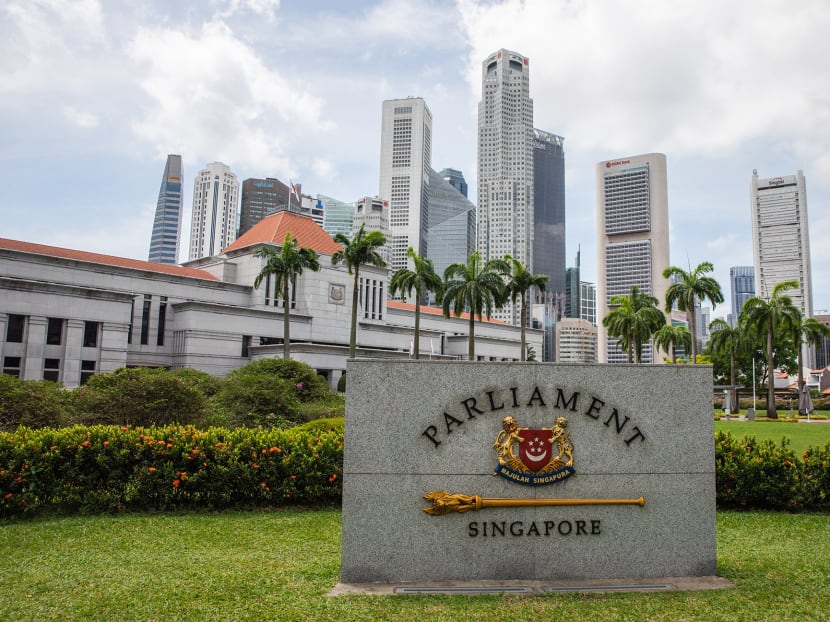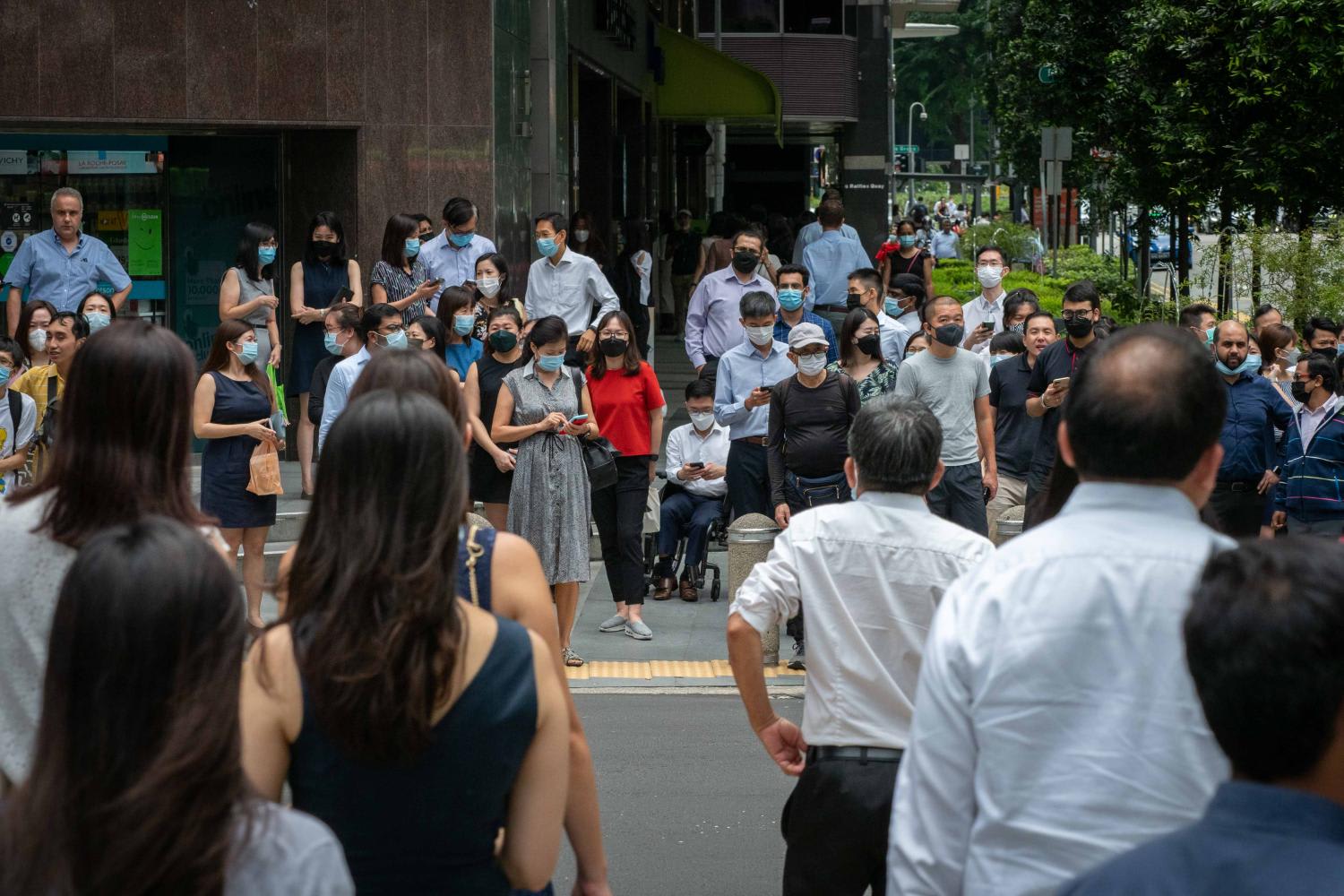Commentary: Budget 2024 set to show the way ahead as Singapore reshapes social compact
How Budget 2024 captures Singaporeans’ imaginations and inspires change will determine how we navigate a crucial inflection point in our history.


This audio is AI-generated.
The unveiling of the Forward Singapore (Forward SG) report in October 2023 has now set the stage for Budget 2024 to flex the fiscal muscle as well as initiate the requisite legal and policy changes to fundamentally remake Singapore’s social compact.
The upcoming Budget promises to be a consequential one. How it captures Singaporeans’ imaginations and inspires change will determine how we navigate a crucial inflexion point in our history.
Since attaining independence in 1965, Singapore has invested much in establishing a social compact that has enabled her citizens to enjoy political stability, rising living standards, a social safety net, and to see themselves through retirement in relative comfort.
NAVIGATING A RADICALLY DIFFERENT WORLD
With Singaporeans living longer amid persistently declining birth rates, that social compact is now being stretched in unprecedented ways. Our nation’s trajectory of progress and development is also increasingly under threat. The relatively stable geopolitics in Asia for much of Singapore’s independence seems less certain today; the multiple crises confronting the world only add to the anxiety and fear.
Given Singapore’s dependence on trade and investments, the economy remains a key concern — costs of living, inflation, wage growth and job security being top of mind.
Recent Budgets since the onset of the Covid-19 pandemic in 2020 are conspicuously about the knock-on effects of different crises abroad as they are acutely felt on Singapore’s and Singaporeans’ well-being.
Forward SG is fundamentally about strengthening the broad middle ground and ensuring that governance and politics enjoy broad-based support and a unity of purpose.
Taken together, the seven proposed policy shifts aim to buttress confidence in Singapore’s future, despite a troubled external environment and domestic constraints posed by a rapidly ageing population, limits in land, labour and carbon emissions, and challenges of inequality and social mobility.
WORKER-CENTRIC BUDGET
Displaced workers have long faced a dilemma: They need to find new jobs requiring new skillsets and know-how but, with families to support, cannot afford to go for training while unemployed. Thus, they often take the first available job rather than opportunities for reskilling and upskilling.
Budget 2024 is expected to provide funding and significant policy announcements on strengthening the skills and training ecosystem to enable Singapore’s workforce to access more training support.
This includes providing unprecedented re-employment support to financially cushion workers while they upgrade their skills. Taken together, they seek to buttress the policy shifts of “respect and reward for every job” and “learning beyond grades”.
At the Institute of Policy Studies’ Singapore Perspectives conference in 2023, Deputy Prime Minister Lawrence Wong noted that work is not just a source of income but “about dignity and purpose in life”.

He added that work is crucial to Singapore’s social compact and system of meritocracy amid disrupting challenges, such as the nature of work, security of work (impacting retirement security), and reward of work (fairer and more equitable rewards from work).
How the unemployment benefits will be structured matters as they must not erode the incentive to and the dignity of work.
REDEFINING MERIT AND SUCCESS
Between 2016 and 2021, the starting pay gap between university and polytechnic graduates increased by S$200 and by S$300 between university and Institute of Technical Education (ITE) graduates. The median starting salary for university graduates is about twice that of ITE graduates and about 1.5 times that of polytechnic graduates.
Education Minister Chan Chun Sing cautioned in February last year that while some differences across jobs and sectors were understandable, efforts must be made towards ensuring that “these differences do not widen significantly over individuals’ lifetimes”.
“Singaporeans must feel that there are opportunities to progress over their career regardless of differences in starting points”, added Mr Chan. This dovetails into the task of strengthening social mobility and broadening the concept of merit in our society.
The Budget will likely continue efforts to nudge employers to step up investments in the training of their workers, and for training that leads to recognised, verifiable credentials. The SkillsFuture programme will likely see a revamp.
The impetus to entrench the habit and motivation for lifelong learning must continue. “Employment resilience” must be the new buzzword.
Under the policy shift of enabling seniors to age well, the Budget will enhance existing schemes such as the Silver Support Scheme and Matched Retirement Savings Scheme. The S$7 billion Majulah Package will also be rolled out, customised for Singaporeans born in 1973 or earlier to boost their retirement savings.
HUSTINGS OVER THE HORIZON
Against the backdrop of Parliament’s impassioned discussion last week on Singapore’s national reserves — in particular, the reserve accumulation policy and whether past reserves should be tapped to help Singaporeans reduce their current financial burdens — the differences in the ruling party’s position and those of the opposition parties will continue to resonate in the subsequent debate on the Budget Statement.
With 18 months left to the current Parliament’s term, Budget 2024 can be expected to demonstrate renewed urgency and resolve to tackle cost-of-living concerns and ensure Singapore remains economically relevant in the medium to long term.
The overarching fiscal policy to be unveiled will be one that the ruling party is prepared to take to the polls, should a general election be called within the next 12 months.
Budget 2024 is set to signal the progress made so far, but also to show the way ahead as Singaporeans re-define meaning, purpose, and success in all areas of life. But legislative fiats and fiscal incentives can only go so far.
Much harder to tackle are the mindset changes necessary to acclimate to the various policy shifts that will require a shake-up of what most of us are accustomed to.
As Singapore enters the next lap in her journey, whether the fourth-generation leadership can rally Singaporeans to, in the words of the Forward SG report, “build a stronger sense of solidarity and identity … (and to) feel a stake in our shared future” will determine our nation’s sociopolitical trajectory in this tumultuous time.
ABOUT THE AUTHOR:
Eugene K B Tan is associate professor of law at the Singapore Management University and a former Nominated Member of Parliament.








